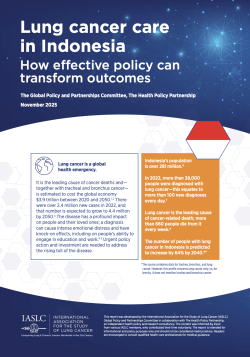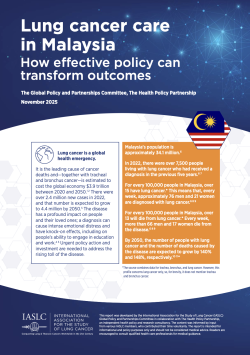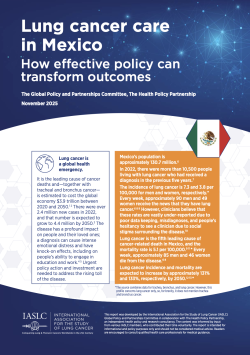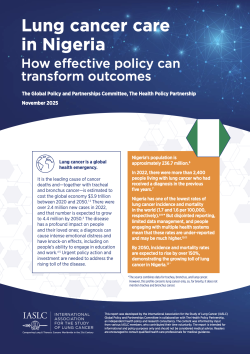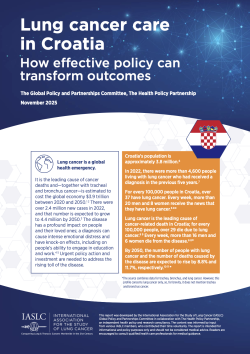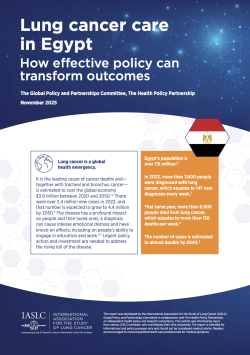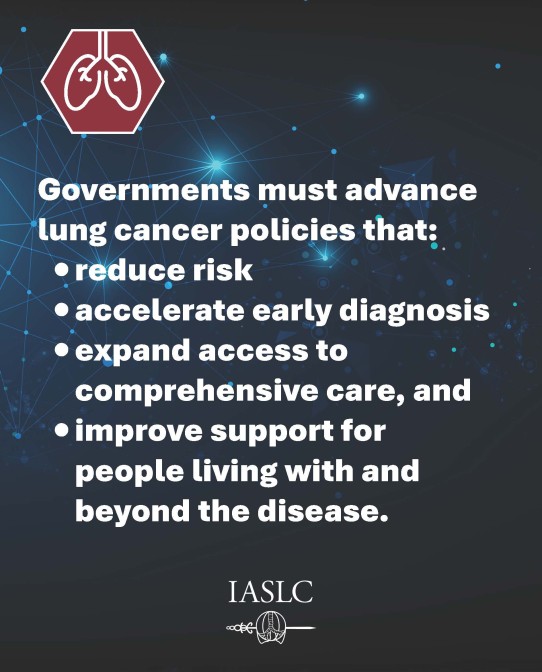
Lung cancer is the leading cause of cancer-related deaths globally, and the number of people affected continues to rise rapidly. Modifiable risk factors (such as active tobacco use) are responsible for the vast majority of lung cancer cases and deaths. Despite this, lung cancer remains underprioritized in national health agendas. The adoption of the Lung Health Resolution at the 78th World Health Assembly presents an important opportunity for governments to take strides to mitigate challenges along the care pathway and reduce the impact of lung cancer on people, society, health systems, and the economy.
The International Association for the Study of Lung Cancer’s (IASLC’s) Global Policy and Partnerships Committee has produced a report that highlights a multitude of opportunities for governments to champion a coordinated and comprehensive policy approach to change the trajectory of lung cancer outcomes worldwide. The report explores the obstacles faced by people with lung cancer and those surrounding them—and identifies how these challenges could be addressed.
This report was developed in collaboration with interviewed experts, including advocates and leading clinicians in the field, alongside input from wider IASLC Committee members. There is considerable scope for national governments to progress in the risk reduction and earlier detection of lung cancer, and the care of people living with and beyond the disease. This report aims to serve as an urgent call to action and a source of inspiration for meaningful change.
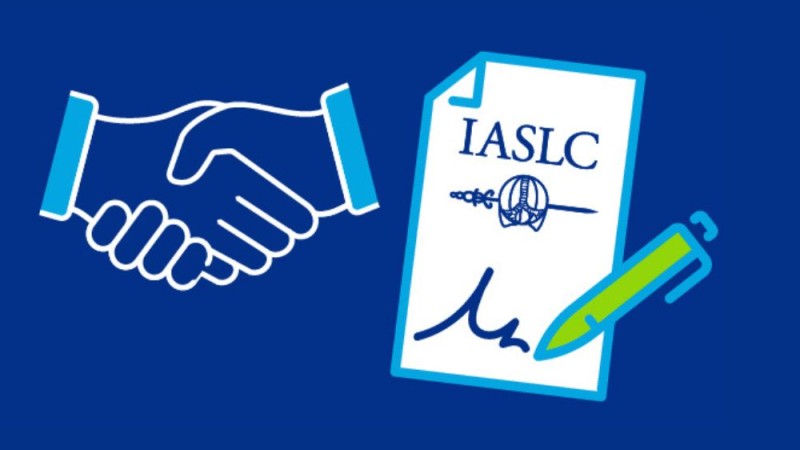
This document presents a fictional scenario—an overview of what lung cancer risk, detection, care, and outcomes could look like if current opportunities to address it were consistently integrated into cancer policy and care. The scenario is based on examples of best practice from around the world, which informed a report by the International Association for the Study of Lung Cancer (IASLC) Global Policy and Partnerships Committee—Transforming lung cancer care: how effective policy can improve outcomes—as well as six accompanying country profiles.


